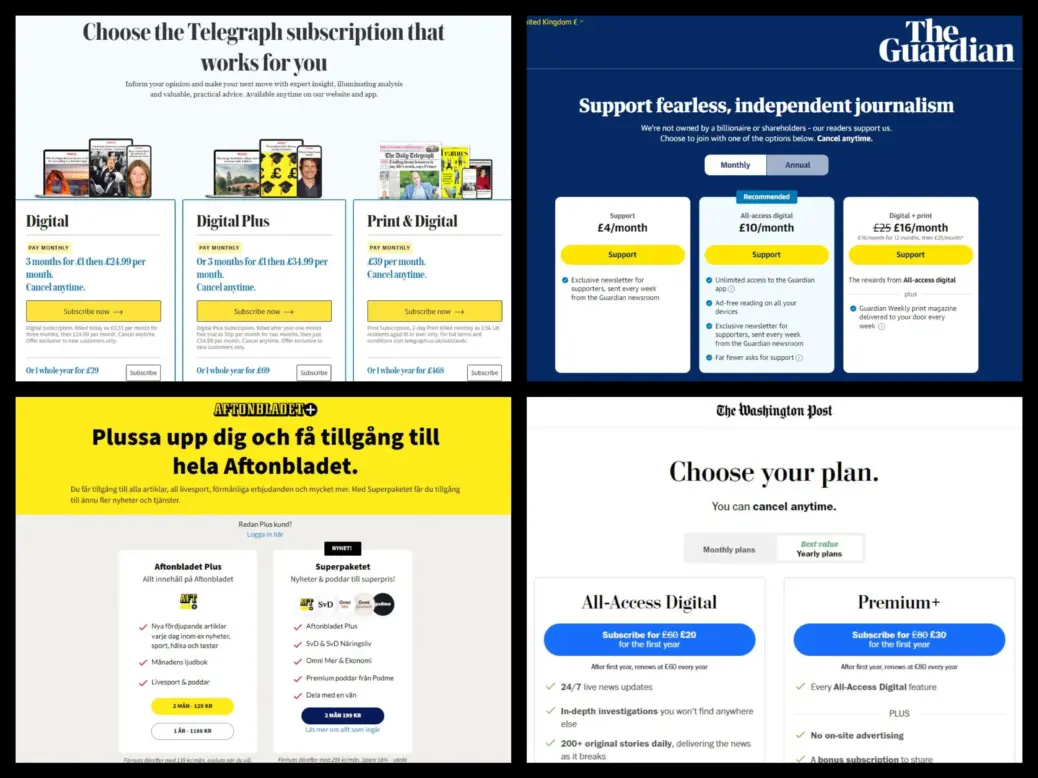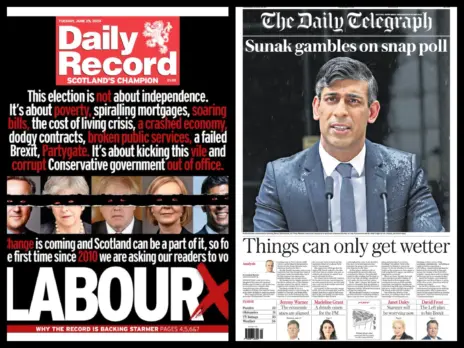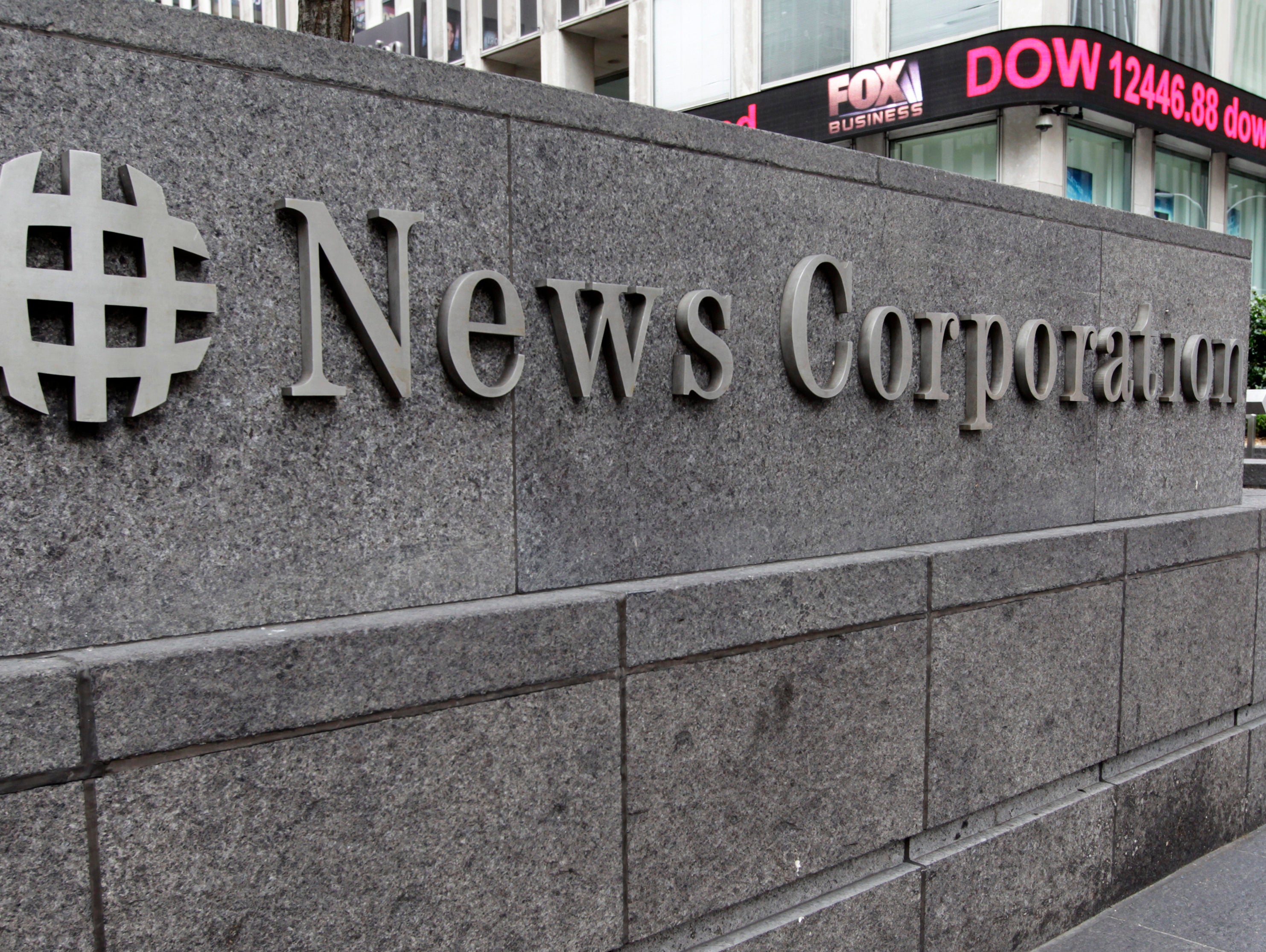
The average proportion of people paying for online news across 20 key markets has stagnated, staying at 17% for four years in a row.
The numbers paying for online news subscriptions are up from 10% in 2014 but last grew in 2021 amid the Covid-19 pandemic.
Meanwhile 57% now say they would not consider paying anything for online news.
The latest Digital News Report from the Reuters Institute for the Study of Journalism said: “Publishers have already signed up many of those prepared to pay, and converted some of the more intermittent payers to ongoing subscriptions or donations. But amid a cost-of-living crisis, it is proving difficult to persuade most of the public to do the same.”
In the UK, just 8% of people said they had paid for online news in the past year - down marginally from 9% a year earlier.
This put the UK dead last in a selection of 20 key "richer" markets by the Reuters Institute.
Among other English-language markets, the US was on 22% with Ireland on 17% and Canada on 15%.
Norway was top of the table with 40% of people paying for online news, followed by Sweden on 31%. At the other end of the ranking Japan saw 9% of people part with cash (no change from last year, when it was joint bottom with the UK). There has been "little movement" in any of these numbers in the past year, the report said.
It added: "Paid models have been a rare bright spot in some of the richer countries in our survey, where publishers still have strong direct connections with readers, but have been difficult to make work elsewhere."
In most of the 20 countries in the survey, the average number of subscriptions among those who do pay for news was just one. The exceptions were the US, Switzerland, Poland and France where people had two subscriptions on average.
Of those who pay for news, there was a also a huge range in the proportions that subscribe to local news. Switzerland (50%), Norway (45%), Sweden (43%) and the Netherlands (40%) were on one end of the spectrum with Poland (3%), Ireland (4%), Portugal (4%) and the UK (8%) at the other end.
Among subscribers, 16% in the UK paid for an international/foreign news outlet, as did 26% in the US.
The report said: "Besides this group of payers, in most markets there is a group willing to pay something if the price and product are right, but it’s only ever a small amount – and perhaps not enough to be attractive for publishers."
Brits least likely to want to pay anything for online news
The UK also had the highest proportion (69%) who admitted they would not be willing to pay anything for online news - up from 65% last year.
Of those who don't currently pay anything, 15% said they might pay up to £5 per month, 10% said they would pay £1 or less a month, and just 4% would pay up to £10.
The proportions saying they would not be willing to pay anything also grew in other countries, with the average across the 20 markets rising from 42% to 57%.
In Germany this unwillingness jumped from 54% to 68% and in the US it was up from 49% to 56%.
The report said this "continued reluctance to pay for news" was "linked to low interest and an abundance of free sources".
The study also found evidence of heavy discounting still being deployed to try and encourage people to become subscribers, with 41% currently paying less than full price for their online news package. This is according to Digital News Report estimates based on who people said they subscribe to and how much they said they pay compared to the latest advertised subscription prices.
In the UK, 41% said they pay less than full price, as did 46% in the US. In Poland (78%) and Canada (54%) more than half of news subscribers were paying less than the actual advertised price. On the other end of the spectrum, in France four-fifths of people were paying full price.
However across all 20 markets, just 2% of non-payers said they would pay the equivalent of an average full-price subscription.
The report said: "In markets where the median price of a subscription is higher, such as Switzerland, larger proportions of people are paying less than the full asking price.
"For example, NZZ costs around 29 CHF per month (~US$32), as does Le Temps. But in some other markets where subscriptions are relatively cheaper, such as Spain, Italy, and Portugal, larger proportions are paying the full amount or more. In Spain, a standard El País digital subscription is around €11 (~US$12), and Público in Portugal costs around €7 (~US$7.50)."
The report also noted that in Sweden, where 65% of subscribers are paying full price, shorter trials of just a few months at a free or discounted price appear to be the norm. This contrasts with markets like the US where The New York Times, Washington Post and Wall Street Journal all offer "inexpensive" one-year trials.
"Cheap trials can be effective in getting sign-ups, but keeping people subscribed is another story," the report noted.
"The jump from a cheap trial to full price is often too much for many. Trial subscribers may not also continue to full price if they didn’t get into the habit of using their subscription."
Email pged@pressgazette.co.uk to point out mistakes, provide story tips or send in a letter for publication on our "Letters Page" blog







